How Much Are Wedding Venues in the UK? Exploring Your Options
Planning your dream wedding in the UK can be both exciting and daunting. With so many beautiful venues to choose from, it’s important to understand the costs involved. In 2024, wedding venues in the UK cost between £8,000 and £10,000 on average. This range can vary based on location and the type of venue you choose, whether it’s a cozy countryside setting or a chic city space.
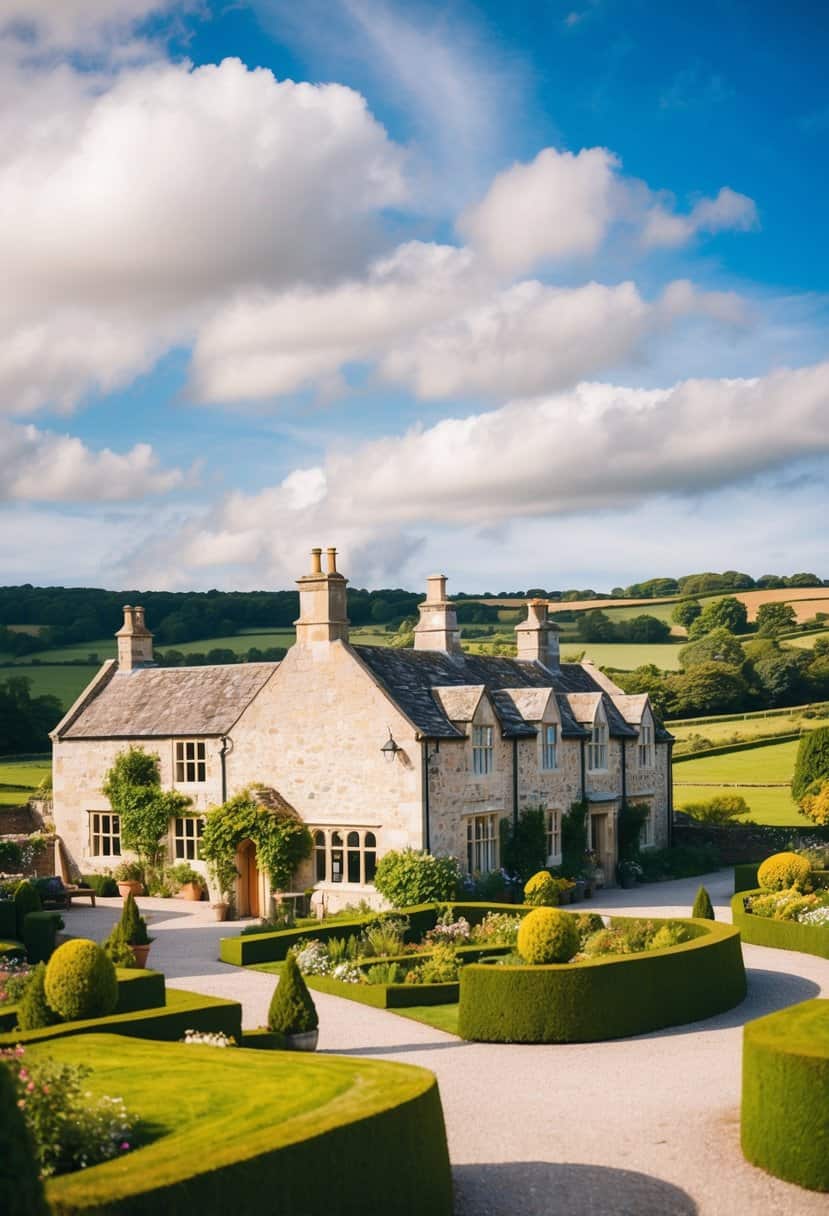
If your heart is set on a wedding in London, be prepared to spend a little more. London venues average around £14,357, reflecting the city’s popularity and vibrant charm. For those looking for something grand, some venues offer exclusive hires, like Botley’s Mansion, at a significant premium.
Whether your budget is big or small, your perfect venue is out there waiting. From quaint villages to bustling urban spots, there’s something for every taste and budget. It’s all about finding what works best for you and your special day.
Understanding Wedding Venue Costs in the UK

When planning a wedding, understanding venue costs is vital for managing your budget. These costs can vary widely due to location, type of venue, and included services, and it’s essential to consider how these factors influence your total wedding budget.
Average Cost of a Wedding in the UK
In 2023, the average cost of a wedding in the UK was about £20,700. With high inflation, this rose significantly from previous years. Venue rental is a significant part of this cost. Typically, the price of a venue ranges from £8,000 to £10,000, depending on what services you choose. This makes up a large portion of many couples’ budgets.
Weddings in London might see higher venue costs, often up to £14,357, reflecting the general rise due to the cost of living crisis. It’s important to compare prices for different months as well. For example, getting married in January or February might be cheaper compared to summer months when prices peak.
Factors Influencing Wedding Venue Prices
Several factors can affect how much you pay for a wedding venue. The type of venue—such as a luxury hotel, historic building, or a simple barn—can make a big difference. Exclusive locations like Botley’s Mansion tend to be more expensive.
Geography also plays a role; venues in cities like London are generally costlier. Services included, such as catering and decorations, can add up. Think about what’s most important to you, as opting for a venue with fewer services but a stunning location might be worth it. Balancing these factors will help you stick to your wedding budget.
Types of Wedding Venues
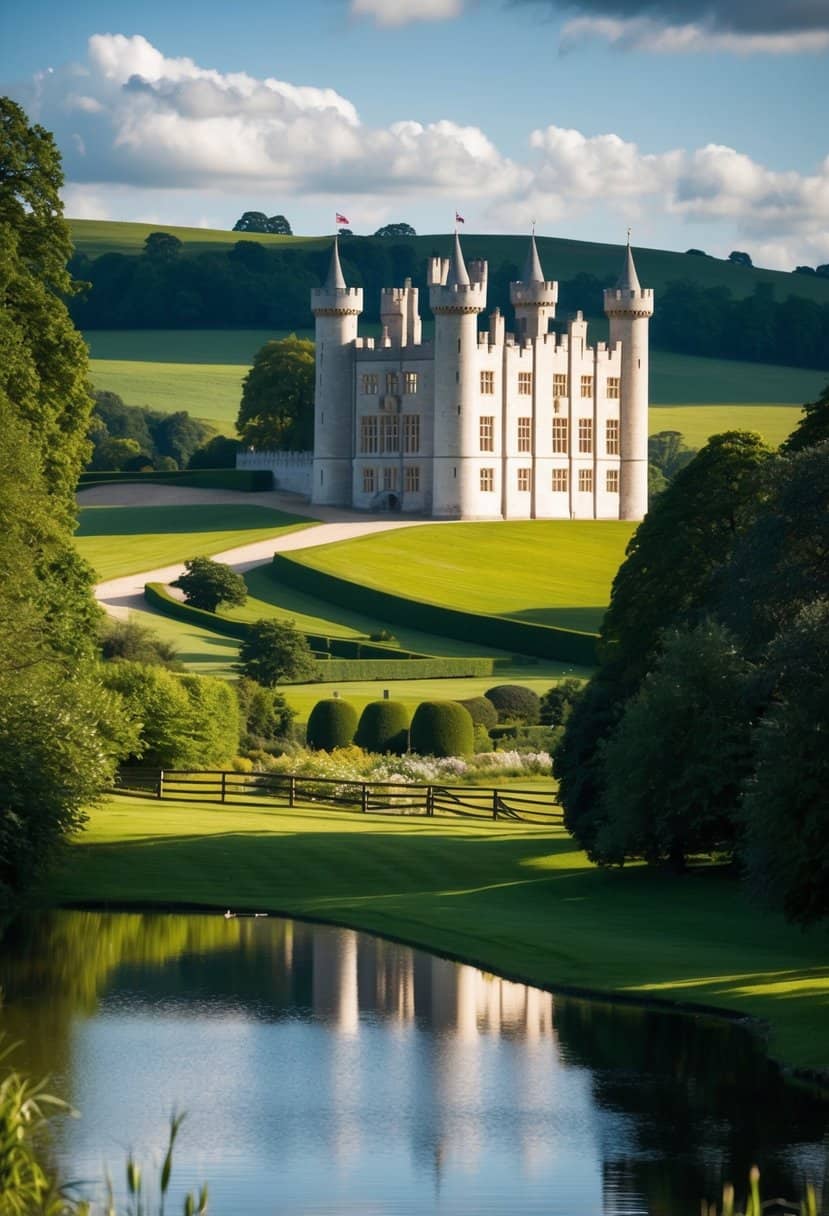
Choosing the right wedding venue is a crucial part of your planning. Whether you dream of a grand historic hall or a cozy rustic barn, each venue type offers unique charm and ambiance.
Grade II Listed Buildings
Grade II listed buildings are often steeped in history and architectural beauty. These venues provide a stunning backdrop with intricate designs and vintage elegance. You might find charming wood paneling, grand staircases, and expansive halls. Their charm lies not just in their historical status but also in their often exquisite landscaped gardens, offering beautiful settings for photos and outdoor ceremonies. Keep in mind that because these buildings are preserved for their historical significance, there may be restrictions on decorations and alterations.
Country Estates and Landscaped Gardens
Country estates often have vast landscaped gardens, providing a serene and picturesque setting. These venues typically offer both indoor and outdoor spaces, allowing flexibility for different-sized weddings. You may experience the elegance of a country house and the beauty of nature in one place. The gardens can be used for ceremonies, receptions, or simply a beautiful backdrop. They offer a blend of luxurious interiors with the natural beauty of the countryside, creating a perfect environment for a fairy-tale wedding.
Landmark Wedding Venues
Landmark wedding venues provide a unique setting that is often iconic and recognizable. These could be famous historic buildings or modern architectural marvels. Hosting a wedding at such a venue can add a sense of grandeur and significance. Guests may be treated to a one-of-a-kind experience with striking views and impressive facades. Due to their popularity and significance, booking a landmark venue often requires planning far in advance.
Rustic Wedding Venues
Rustic wedding venues are perfect for a laid-back, intimate atmosphere. They often include barns, farms, or countryside lodges with natural and earthy elements. These venues embrace simplicity and charm, often using wood, stone, and exposed beams. The relaxed vibe is complemented by the surrounding natural beauty, whether it’s rolling hills or a secluded forest. Rustic venues allow for creative decor and a personal touch, making your celebration feel cozy and welcoming.
Venue Hire Options
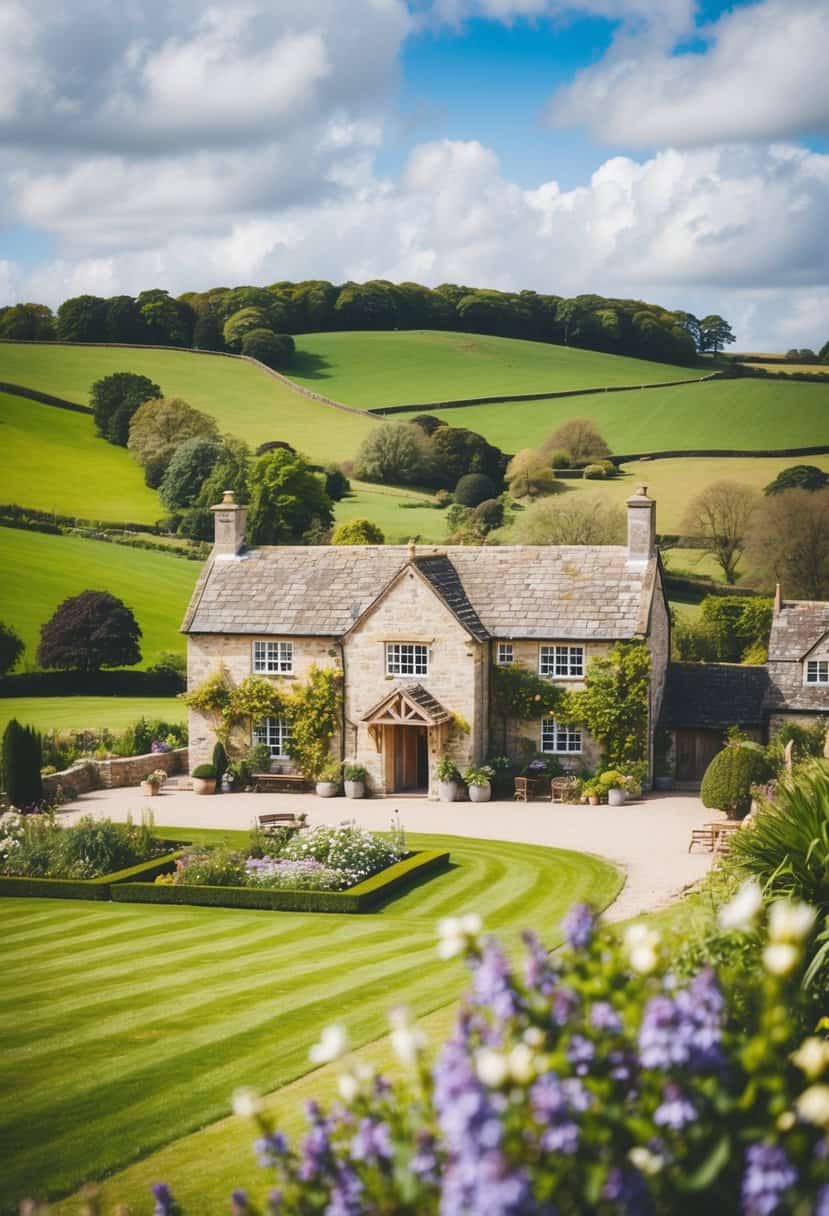
When choosing a venue for your wedding in the UK, you’ll encounter a variety of hire options. These include dry hires and all-inclusive packages, as well as venues catering to both intimate gatherings and grand scale celebrations.
Dry Hire Versus All-Inclusive Packages
In a dry hire venue, you’re essentially renting the space only. This means you need to arrange for everything else—catering, decorations, and sometimes even furniture. Dry hire can offer you flexibility and control over your wedding details. It’s a great choice if you have a specific vision or want distinct vendors.
On the other hand, all-inclusive packages wrap everything into one. Venues offering all-inclusive options usually cover food, staff, decor, and sometimes even entertainment. This can significantly reduce stress as you have fewer decisions to make and don’t need to coordinate multiple vendors. All-inclusive options often come with experienced planners who help to make your vision a reality while sticking to a manageable budget.
Intimate Versus Grand Scale Weddings
An intimate wedding typically involves fewer guests and creates a cozy atmosphere. These smaller gatherings give you the chance to share your day with those closest to you. Intimate weddings also often allow you to spend more on key details, such as gourmet food or luxurious decor, since you’re catering to fewer guests.
For a grand scale wedding, you’ll need a venue that can accommodate a larger crowd. These venues often come with extensive facilities and options to cater for hundreds of guests, which can elevate your celebration. Whether in a historic mansion or expansive hotel ballroom, bigger weddings may also involve more intricate coordination and logistics.
Choosing between these options depends on your personal preferences and budget. Each type brings its own charm and sets the tone for your special day.
The Role of Wedding Planners and Suppliers
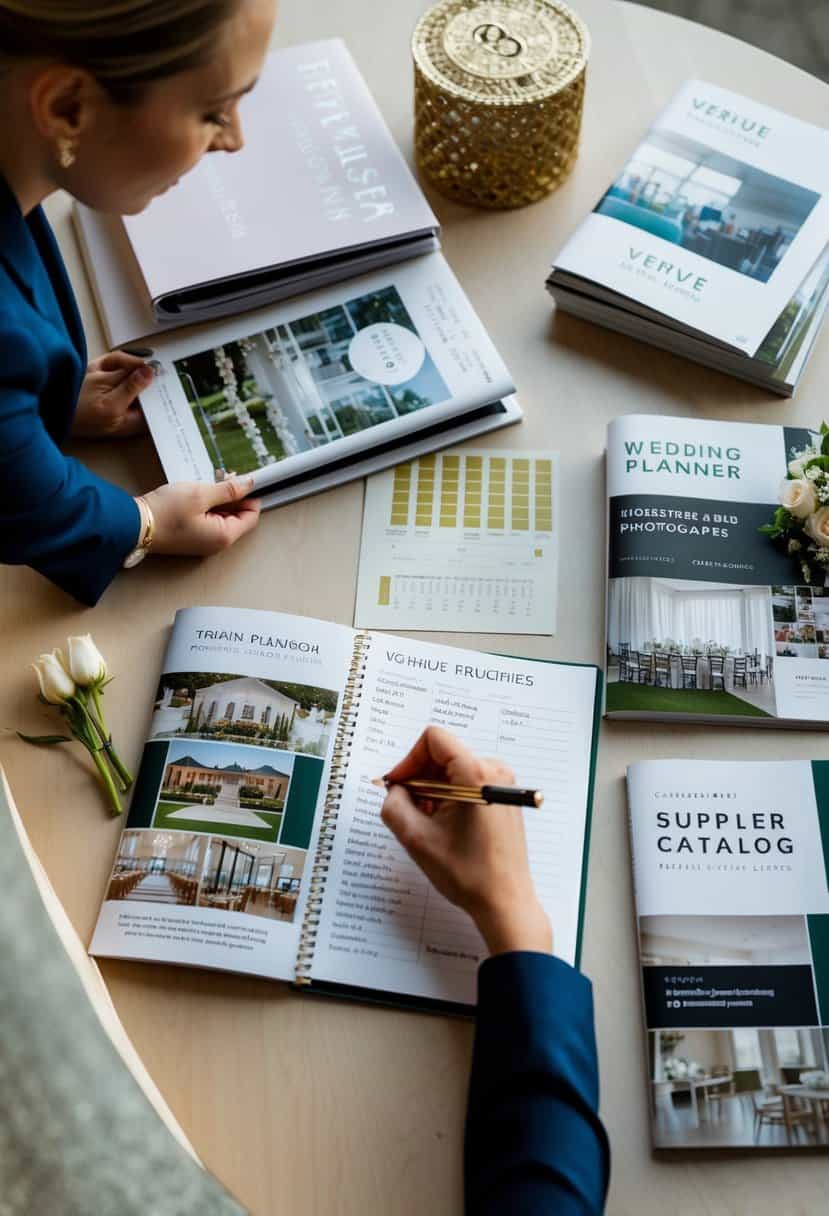
Wedding planners and suppliers play a vital role in helping you create your dream wedding. They work together to ensure everything runs smoothly and reflect your personality and style.
Collaborations with Wedding Planners
Working with a wedding planner can make organizing your wedding much easier. They help you build a team of trusted vendors and manage the entire process. From venue selection to coordinating on the big day, planners ensure that no detail is overlooked.
Their experience allows them to recommend professionals who fit your style and budget. They negotiate contracts and help manage your budget, making sure you get the best value. Wedding planners also handle any last-minute issues, giving you more time to enjoy your special day.
A planner’s knowledge is beneficial if you want a bespoke wedding that reflects your unique taste. They have creative ideas and industry connections that turn your vision into reality. Their strong relationships with suppliers ensure quality service and a seamless experience.
Choosing the Right Wedding Suppliers
Suppliers are essential in bringing your wedding dreams to life. Choosing the right ones depends on assessing your needs and budget. Popular suppliers include caterers, photographers, florists, and decorators. Each of them plays a crucial role in setting the mood and tone of your wedding.
When selecting suppliers, consider their reputation, portfolio, and reviews from previous clients. A good supplier should understand your vision and have the flexibility to accommodate any unique requests.
Many venues offer packages that include preferred suppliers, which can make decision-making easier. These packages often provide discounts and ensure high-quality service. If you seek a more personalized touch, you might opt to hire separate vendors for a bespoke wedding.
Additional Considerations for Your Special Day
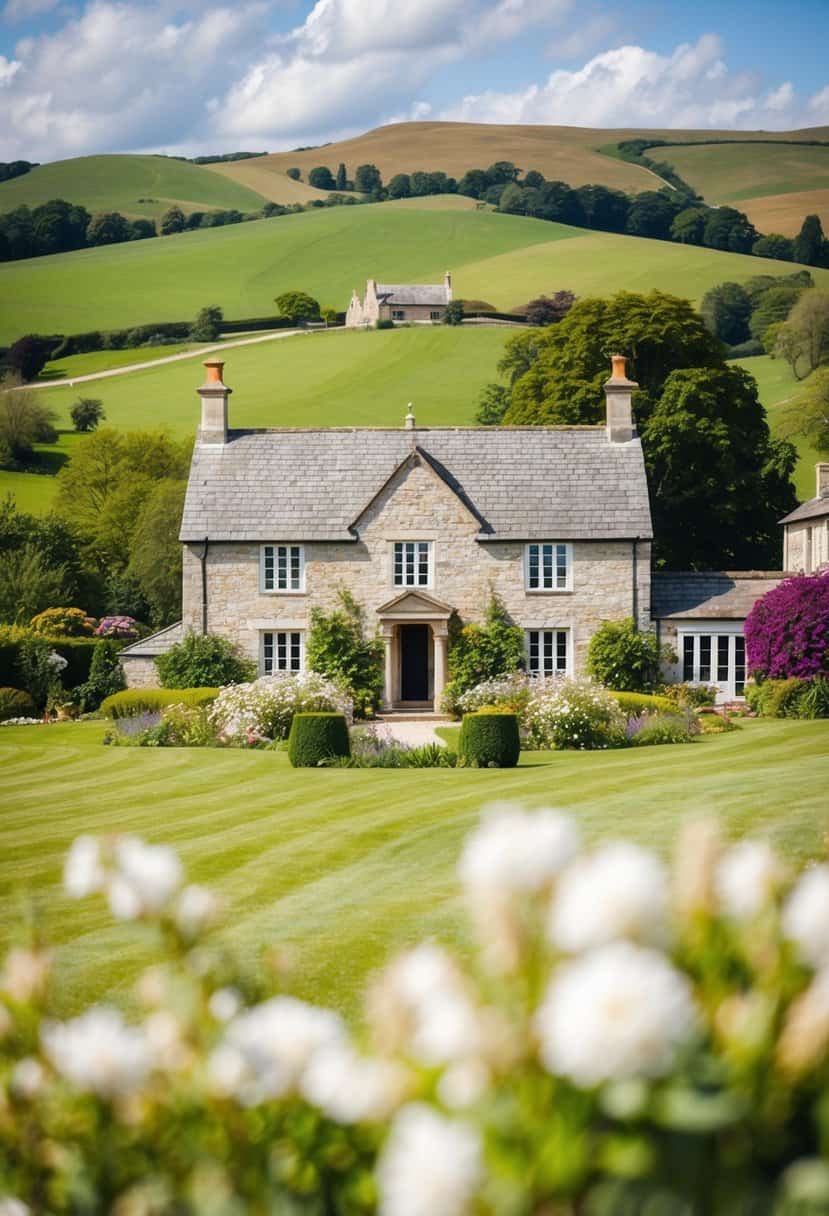
Planning a wedding involves more than just picking a venue. Think about options like catering and the wedding breakfast, the possibility of a civil ceremony, and adding personal touches with wedding favours. Each of these elements plays an important role in making your day unique.
Catering and Wedding Breakfasts
Catering is a key part of your wedding day. Whether you opt for a traditional sit-down meal or a more casual buffet, choosing the right menu will leave a lasting impression on your guests. The wedding breakfast, which is the meal served after the ceremony, is a perfect opportunity to showcase your style and taste.
Some venues might offer in-house catering, while others may allow outside caterers. Consider any dietary restrictions your guests might have. Opting for a menu that can cater to different needs is helpful for everyone involved.
Discuss with your caterer about tasting sessions before finalizing your choices. These sessions ensure that the food meets your expectations and aligns with your theme.
Options for a Civil Ceremony
A civil ceremony is a popular option for those who want a non-religious wedding. It can be held in various locations like a converted barn or a local registry office. This flexibility helps you manage logistics more easily and offers a variety of settings for your vows.
You will need to contact your local authority to book a registrar. It’s advisable to do this well in advance to secure your preferred date. A civil ceremony allows for a more personalized service, as you can often customize vows and music to suit your tastes.
Make sure the venue is approved for civil ceremonies and check any requirements for the legal paperwork needed to make it official.
Personal Touches with Wedding Favours
Wedding favours are a thoughtful way to thank your guests for joining you. The possibilities are endless, from homemade jams to small plants. These small gifts can reflect your personalities and keep the memory of your day alive.
You can coordinate favours with the overall theme of your wedding. For example, if you’re going for a rustic look, consider using burlap bags filled with treats. If sustainability is important to you, opt for eco-friendly options like seed packets or reusable items.
Cost is a factor, so keep in mind your budget. Simple and heartfelt favours are often the most appreciated, and you can make them unique without breaking the bank.



